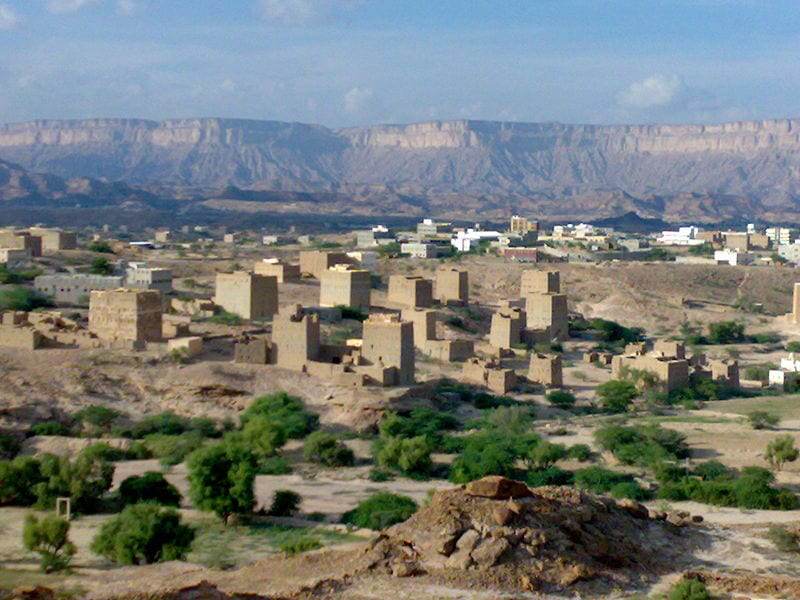
Barran Press
The Al-Mocha Strategic Studies Center revealed on June 24, 2024, a detailed plan by the Houthi group, internationally recognized as a terrorist organization, to "destroy the Yemeni republic and replace it with a state of sectarianism and lineage."
This revelation came in a research paper titled "The Houthis' Project to Revive the Imamate and Change Identity," analyzing five different documents issued by the Houthi group before and after seizing power. The paper delves into the content of these documents, "deconstructing their dimensions and objectives."
The five documents are: the ideological and cultural document, the tribal honor document, the national vision for building a modern Yemeni state, the code of conduct for public servants, and finally, the education paper in Yemen.
The research paper, reviewed by "Barran Press," concluded through analysis of the "ideological and cultural document" that the Houthis consider Zaidi Ja'farism as their supreme reference, similar to the Shia in Iran who consider the Twelver Shia doctrine as the supreme reference for their state.
This document outlined "some of the features and shape of the Houthi political system," while the national vision for building the state, the code of conduct for public servants, and the education paper "completed the details and features of that system."
The study considered the "ideological and cultural document – in its theoretical aspect – the first step towards preparing and paving the way for the downfall of the republican system, while the tribal cohesion conference represented the second practical step towards the Houthi coup that was fully realized in 2014."
Furthermore, the study deemed the "tribal honor document as the third practical step towards the Houthi coup," explaining that it "carried two main objectives: the first was to subjugate the Yemeni tribe to the Houthi group, and the second was to weaken and restrict it, ultimately ending its political role in the long run."
Regarding the group's vision for building the state, the research paper found that it "established what is called the 'faith-based identity' by incorporating it into the supreme references of the vision," indicating that it "eliminated all other formal references in the vision with a republican character, such as the constitution, the outcomes of the National Dialogue Conference, and the visions of political parties."
The paper added that this vision presented "a political system without features and deliberately avoided addressing the existing Houthi system (the de facto authority)." It stated that the vision "did not touch upon the issue of electing the president under Houthi rule, as if it acknowledges the method of appointing him by the so-called 'leader of the revolution,' who occupies a position higher than the president without any official constitutional or legal status that grants him such a position."
Regarding the "code of conduct for public servants," the study explained that the code eliminated "all the rights-based aspects" that the vision for building the state had emphasized. It indicated that its central objectives revolved around "two fundamental goals: perpetuating what is called the 'faith-based identity' with its Houthi features as a substitute for the Yemeni national identity; and the second is to abolish republican references and replace them with sectarian Houthi references."
Concerning the education paper, the study stated that it did not carry any "educational or pedagogical content, but rather purely ideological and political content." It indicated that it "aims to perpetuate the identity of the Houthi group and their lineage-based project as an alternative system."
The study clarified that this system "seeks to gain popular legitimacy by brainwashing and mobilizing the masses in the name of the guardianship of Imam Ali and his descendants, culminating in the Houthis, and using jihad as a pretext for this, which in reality means fighting those who oppose the Houthis' claim to power."
Overall, the study concluded that the "Houthi project seeks – gradually – to solidify its presence and legitimacy by imposing its own legislation, through which it excludes republican references and legislation." At the same time, it "systematically works to erode the institutions of the state and its national identity, creating parallel entities to replace them."
Therefore, the study confirmed that the group is implementing a "well-planned scheme to dismantle the people's state and replace it with a state of sectarianism and lineage." It explained that "this scheme is progressing rapidly amid the negligence and conflict within the republican ranks, and the complicity of external regional and international parties."
On September 21, 2014, the Houthi group, internationally recognized as a terrorist organization, stormed the Yemeni capital Sana'a, seizing control of civilian and military state institutions. They then launched their expansionist wars towards other cities in the south and east of the country, utilizing state resources to finance this war, which continues to this day.





